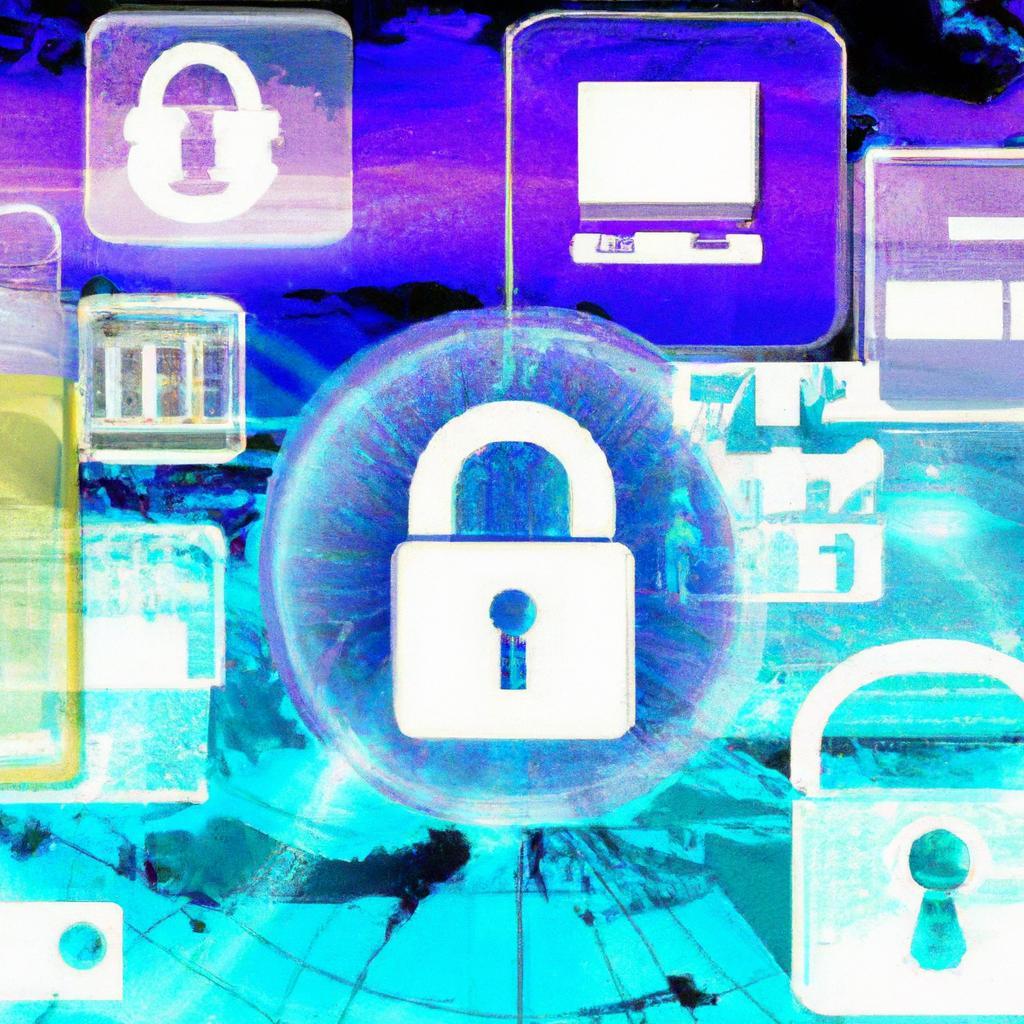
How to Securely Store Your Financial Information Online
In the digital age, the convenience of managing our finances online comes with the responsibility of safeguarding our sensitive information. From bank accounts to credit card details, keeping our financial data secure is crucial in today’s tech-savvy world. In this article, we will explore some practical tips and strategies on how to securely store your financial information online, ensuring peace of mind and protection against potential threats.
Table of Contents
- Overview of Online Financial Security Measures
- Importance of Strong Passwords and Two-Factor Authentication
- Utilizing Secure Online Banking Platforms
- Tips for Safely Sharing Financial Information Online
- Q&A
- To Conclude
Overview of Online Financial Security Measures
When it comes to storing your financial information online, it is important to implement robust security measures to ensure your data remains safe from cyber threats. One of the key steps in safeguarding your sensitive information is to use strong and unique passwords for all your accounts. Avoid using common passwords that can easily be guessed by hackers. Consider using a password manager to generate and store complex passwords securely.
Another important aspect of online financial security is enabling two-factor authentication whenever possible. This adds an extra layer of protection by requiring a second form of verification, such as a code sent to your phone or email, in addition to your password. Regularly monitoring your financial accounts for any suspicious activity is also crucial in detecting and addressing any potential security breaches. By staying vigilant and following these best practices, you can enhance the security of your online financial information and minimize the risk of unauthorized access.
Importance of Strong Passwords and Two-Factor Authentication
Storing your financial information online can be convenient, but it also comes with inherent risks. Protecting your sensitive data is crucial, which is why utilizing strong passwords and two-factor authentication is essential. By incorporating these security measures, you can significantly reduce the chances of falling victim to cyber attacks and identity theft.
When creating a strong password, consider using a combination of uppercase and lowercase letters, numbers, and special characters. Avoid using easily guessable information such as your name or birthdate. Additionally, enabling two-factor authentication adds an extra layer of security by requiring a verification code in addition to your password. This extra step ensures that even if your password is compromised, hackers will still need physical access to your device to log in successfully.
Utilizing Secure Online Banking Platforms
When it comes to securing your financial information online, it is essential to utilize secure online banking platforms that prioritize the protection of your data. One crucial step in safeguarding your information is setting up strong and unique passwords for your accounts. Make sure to use a combination of letters, numbers, and special characters to create a password that is difficult for hackers to crack.
Additionally, enable two-factor authentication whenever possible to add an extra layer of security to your online banking accounts. This will require you to input a verification code sent to your mobile device or email in addition to your password when logging in. Regularly monitor your account activity and report any suspicious transactions to your bank immediately. By taking these precautionary steps, you can help ensure that your financial information remains secure when using online banking platforms.
Tips for Safely Sharing Financial Information Online
When it comes to safely sharing financial information online, it’s important to follow some key tips to protect your sensitive data. One way to secure your information is to use secure websites that have encryption, such as HTTPS. Look for the lock icon in the address bar to ensure the site is secure before entering any financial details.
Another tip is to avoid sharing sensitive information on public Wi-Fi networks, as these connections can be easily intercepted by hackers. It’s also a good idea to regularly update your passwords and use strong, unique ones for each financial account. Consider using a password manager to help keep track of your login credentials securely.
Q&A
Q: Why is it important to securely store your financial information online?
A: It’s crucial to protect your sensitive financial data from hackers and fraudsters who could steal your money or identity.
Q: What are some tips for securely storing financial information online?
A: Some tips include using strong, unique passwords, enabling two-factor authentication, and regularly monitoring your accounts for suspicious activity.
Q: How can I ensure my online financial accounts are secure?
A: Make sure to use reputable, secure websites and apps, and be cautious when sharing personal information online. Keep all software and antivirus programs up to date to prevent security breaches.
Q: What should I do if I suspect my financial information has been compromised?
A: If you suspect your information has been compromised, contact your financial institution immediately to report any unauthorized transactions and change your passwords and security settings.
Q: Are there any additional ways to protect my financial information online?
A: Consider using a password manager to securely store and generate unique passwords for each of your accounts, and avoid accessing sensitive information on public or unsecured Wi-Fi networks.
To Conclude
safeguarding your financial information online is crucial in today’s digital age. By following the various tips and tricks mentioned in this article, you can ensure that your sensitive data remains protected from potential threats. Remember, taking proactive measures to secure your online accounts and passwords is key to keeping your finances safe and secure. Stay vigilant, stay informed, and stay safe in the digital realm. Thank you for reading and good luck in keeping your financial information secure!

